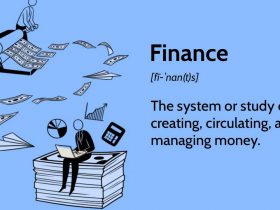The Society for Worldwide Interbank Monetary Telecommunication, generally often known as SWIFT, is a company that gives instruments to facilitate safe, environment friendly communication amongst monetary establishments world wide. Though SWIFT doesn¡¯t course of transactions or maintain belongings, its billions of messages amongst establishments enable for the protected, fast processing of quite a lot of sorts of banking processes.
In practically 50 years of existence, SWIFT has grown to embody some 11,000 establishments in additional than 200 nations and territories. It’s a central a part of the worldwide monetary panorama.
Due to the prominence of SWIFT within the worldwide monetary group, there are sturdy incentives for member organizations and nations to stay in good standing with the system, lest they be minimize off from the main world platform used to facilitate transactions. Because of this, the specter of sanction and elimination from SWIFT could be a highly effective instrument in worldwide relations.
Key Takeaways
- The Society for Worldwide Interbank Monetary Telecommunication (SWIFT) is the main group facilitating safe, world communication amongst monetary establishments.
- Banks, companies, and governments depend on the SWIFT communication platform to make sure environment friendly and protected transactions world wide.
- The specter of elimination from the SWIFT platform¡ªenacted by way of European Union (EU) regulation¡ªis a robust sanction and deterrent.
- Sanctioning a nation by eliminating its entry to SWIFT can have unfavorable impacts for commerce companions and others world wide as effectively.
- Some argue that banking and different sanctions may be simpler deterrents.
SWIFT¡¯s Organizational Construction and Sanctions
SWIFT is a impartial cooperative group working for the good thing about all its members. As such, it doesn’t undertake specific worldwide geopolitical positions. Nonetheless, the group is overseen by the central banks of the Group of Ten (G10) nations, and it operates beneath Belgian¡ªand thus European Union (EU)¡ªregulation.
Sanctions in opposition to nations or people may be imposed by quite a lot of jurisdictions world wide, and SWIFT can¡¯t arbitrarily select which jurisdiction¡¯s sanctions to comply with. Nevertheless, the construction of SWIFT¡¯s governance does imply that it should abide by EU laws; if the EU enacts sanctions, SWIFT is compelled to comply with these pointers.
How SWIFT Sanctions Work
In 2012, the EU enacted sanctions prohibiting SWIFT from offering monetary messaging companies to sure Iranian banks. Many of those banks had been delisted by the EU after which reconnected to SWIFT in early 2016.
On this instance, banks faraway from SWIFT could be compelled to make use of one other, considerably much less outstanding different technique of communication with different monetary establishments across the globe. Within the case of Iran, the SWIFT sanctions considerably hindered worldwide commerce, as potential clients searching for to purchase Iranian items from exterior the nation had a really troublesome time facilitating funds.
This instance illustrates the facility of SWIFT sanctions as an incentive or deterrent in geopolitics. Iranian banks¡ªand, by extension, Iranian companies and people¡ªhad been considerably minimize off from world commerce on account of a scarcity of capability to finish monetary transactions.
SWIFT sanctions might have a devastating affect on a nation¡¯s financial system, the energy of its foreign money, and the capability of people and companies to conduct their regular operations.
Dangers of SWIFT Sanctions
The instance of Iran additionally factors to potential dangers or downsides to utilizing a SWIFT cutoff as a global relations instrument. Whereas Iran was minimize off from many facets of world commerce, the affect of those sanctions additionally extends to the nation¡¯s buying and selling and enterprise companions elsewhere on this planet. The extent to which a rustic is tied to the worldwide monetary community will decide the vary of this affect; the extra linked the sanctioned nation is to different nations, the larger the ripple impact.
In 2014, following Russia¡¯s annexation of Ukraine¡¯s Crimea Peninsula, some world leaders referred to as for the nation to be minimize off from SWIFT. In early 2022, these calls resumed following Russia¡¯s invasion of Ukraine. A key distinction between these examples and Iran above is that Russia is a considerably bigger financial system that’s far more globally linked than Iran. Due to the truth that Russia¡¯s main exports are oil and gasoline, each vital to Europe¡¯s livelihood, the affect of SWIFT sanctions on different nations could be vital. Thus, there’s decreased incentive to make use of SWIFT sanctions in a case like this.
Alternate options to SWIFT Sanctions
Detractors of the usage of SWIFT sanctions argue that chopping establishments and even a whole nation off from the communications platform doesn¡¯t prohibit unhealthy actors from partaking in worldwide transactions. It merely makes the method harder. There are alternate options to SWIFT, though they’re much less efficient. Russia reportedly developed its personal SWIFT different following the 2014 occasions above, probably additional limiting the usefulness of a SWIFT blockade.
As a substitute of chopping establishments off from SWIFT, some analysts argue that financial institution sanctions may very well be extra impactful. Concentrating on monetary establishments that act as brokers for governments and rich people might have a extra direct and devastating affect, the pondering goes.
How do Society for Worldwide Interbank Monetary Telecommunication (SWIFT) sanctions work?
The Society for Worldwide Interbank Monetary Telecommunication (SWIFT) can prohibit monetary establishments from utilizing its messaging service. This forces these establishments to make use of an alternate, which is probably going slower, much less safe, and fewer linked. SWIFT sanctions don’t prohibit establishments from facilitating transactions; nonetheless, the dearth of entry to the SWIFT platform could be a main hindrance.
Who controls SWIFT sanctions?
SWIFT is a impartial cooperative working with hundreds of economic establishments in all elements of the world. It operates beneath Belgian¡ªand subsequently European Union (EU)¡ªregulation. Which means it adopts EU sanctions.
What are the downsides to SWIFT sanctions?
One draw back to SWIFT sanctions is their effectiveness. As talked about above, SWIFT can¡¯t bar nations or monetary establishments from conducting transactions. Establishments could possibly discover work-arounds, notably in recent times, as cryptocurrencies more and more enable for cross-border transactions. Moreover, SWIFT sanctions may be troublesome to restrict to a specific nation or set of establishments. As a result of world nature of the monetary world, sanctioning one nation negatively impacts others as effectively.













Leave a Reply